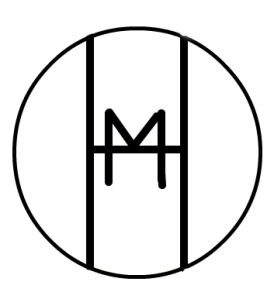by Jonathan Hobratsch
This blog originally appeared on The Huffington Post‘s website on 8/24/2011 under a different title. This older blog discussed “successful” 3rd parties of the past, while considering the possibility of a strong 3rd party run in the 2012 election, including by Donald Trump and Bernie Sanders. I have decided to update this blog to reflect the 2016 election.
The 1912 election is the high-watermark of 3rd party runs. In this election, our traditional parties competed with two strong 3rd parties — the Progressive “Bull Moose” Party and the Socialist Party, both of which make the top 10 list.
To the present day, ten third party candidates have shown some strength in the polls in presidential elections. However, each fought against insurmountable odds. While they had little chance of victory, they often did enough to change the course of the election.
In truth, in this period, Roosevelt in 1912 and Perot in 1992 probably had the only chances of winning an election if they had attained enough electoral votes to send the decision to the House.
Looking at the 2016 election, there has been discussion of a possible Trump third party run or an establishment Republican third party run, depending on whoever gets the Republican nomination. Former New York mayor Michael Bloomberg has recently decided against running as an independent candidate. A conservative 3rd party will ensure a Democratic victory for the third time.
Here are the top 10 3rd party candidates since 1912:
#1 Teddy Roosevelt – Progressive “Bull Moose” Party
1912 election — 27.4% popular vote — 88 electoral votes
TR launched his own party when he failed to wrench the Republican nomination from his old hand-picked successor. President Taft had moved away from Roosevelt’s progressive ideals–opting to cater to the growing conservative majority within the Republican party. TR knew he couldn’t win, but believed he could split the electoral votes up enough to send the election to the House of Representatives for a final decision.
#2 Ross Perot – Reform Party
1992 election — 18.9% popular vote — 0 electoral votes
These numbers could have been higher. He was leading in the polls during the first quarter of 1992, but dropped out of the race prior to Clinton’s nomination by the Democratic Party. A few weeks later Perot returned but had lost much of his previous support.
#3 Robert La Follette – Progressive Party
1924 election — 16.6% popular vote — 13 electoral votes
Both major parties ran conservative candidates; therefore, La Follette ran as a liberal option. He won his home state of Wisconsin, as well as many counties in the West and Midwest.
#4 George Wallace – American Independent Party
1968 election — 13.5% popular vote — 46 electoral votes
This Southern populist left the Democratic party and went on to win Arkansas, Louisiana, Mississippi, Alabama and Georgia in this election. He primarily took votes away from Republican Richard Nixon despite Wallace having been a long time Democrat.
#5 Ross Perot — Reform Party
1996 election — 8.4% popular vote — 0 electoral votes
His encore was not as successful.
#6 John B. Anderson – Independent/Unity Party
1980 election — 6.6% popular vote — 0 electoral votes
He helped defeat Jimmy Carter. Anderson, a moderate Republican, decided to run against the more conservative Ronald Reagan. However, many of Carter’s supporters opted for Anderson. Carter presumably lost votes by refusing to appear at any debate involving Anderson.
#7 Eugene V. Debs – Socialist Party
1912 election — 6.0% popular vote — 0 electoral votes
The most successful Socialist politician before Bernie Sanders.
#8 Eugene V. Debs – Socialist Party
1920 election — 3.4% popular vote — 0 electoral votes
This is impressive considering Debs was in prison.
#9 Allan L. Benson – Socialist Party
1916 election — 3.2% popular vote — 0 electoral votes
Debs took an election off, and it clearly hurt the party, as you can see.
#10 Ralph Nader – Green Party
2000 election — 2.7% popular vote — 0 Electoral votes
This is the famous “stolen” election. Many still blame Nader for taking votes away from Al Gore.

Well-done! –Paul
LikeLike